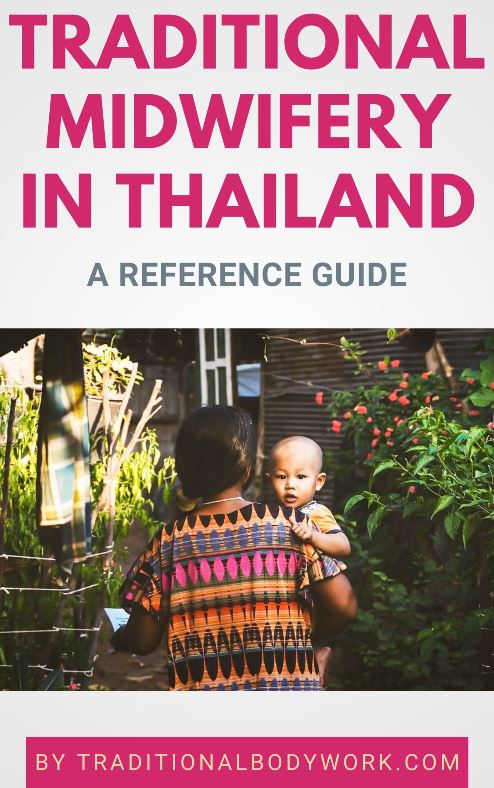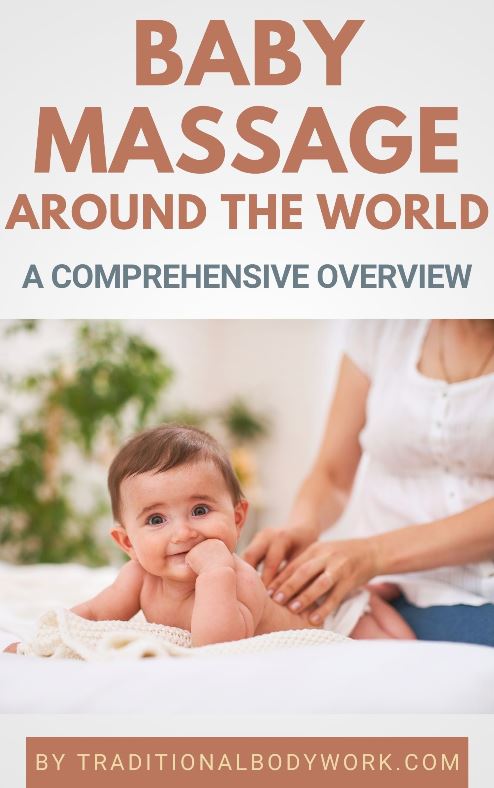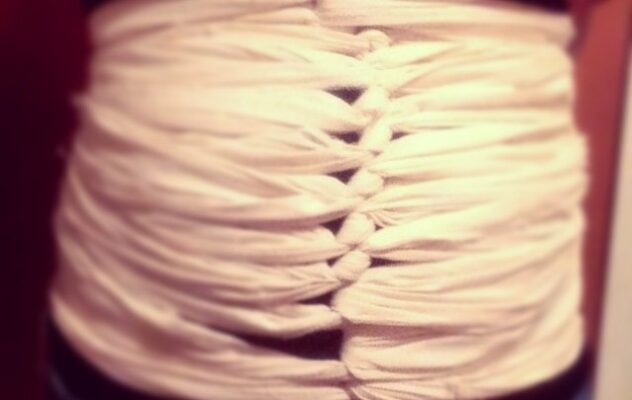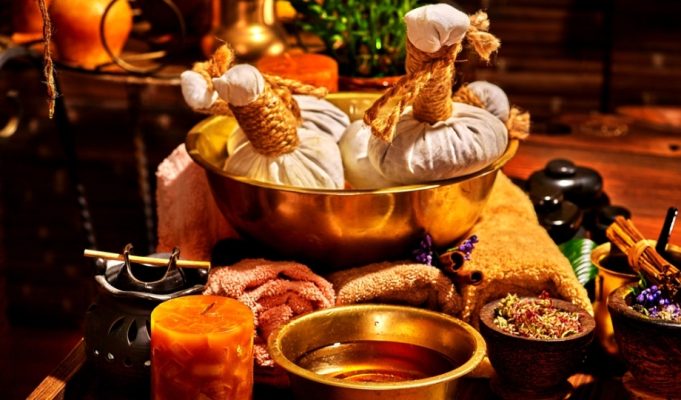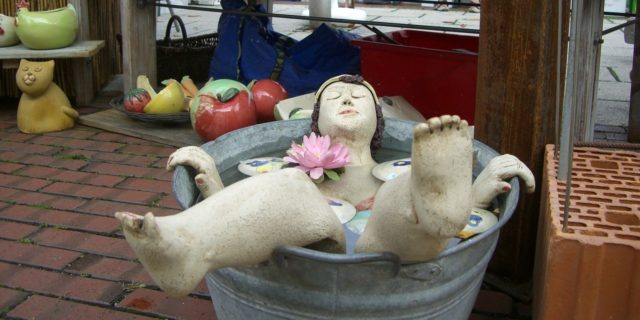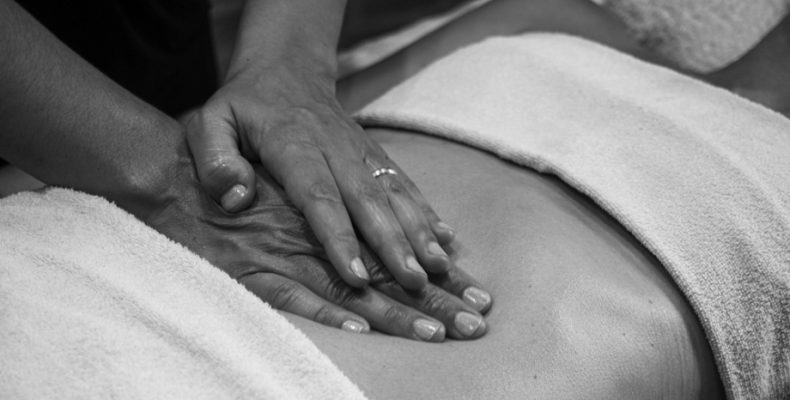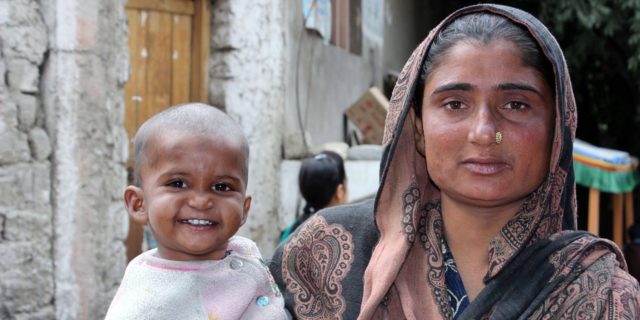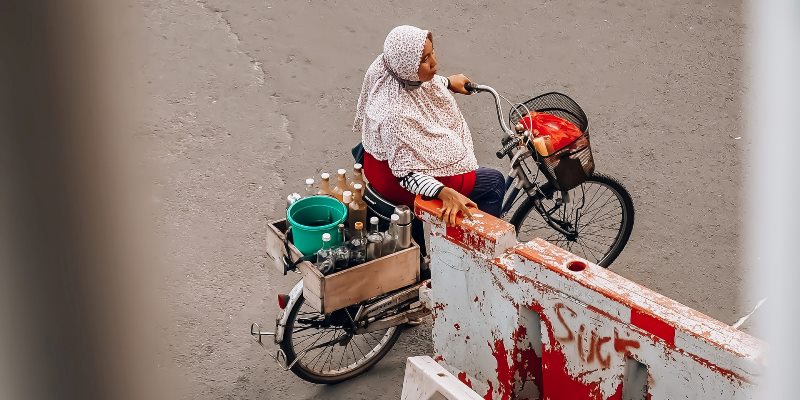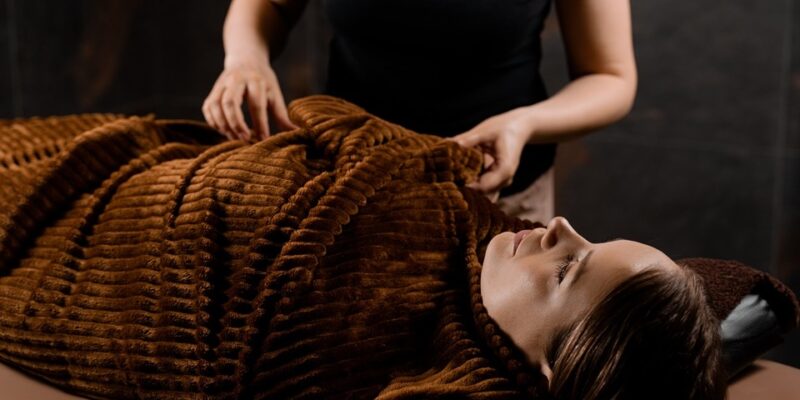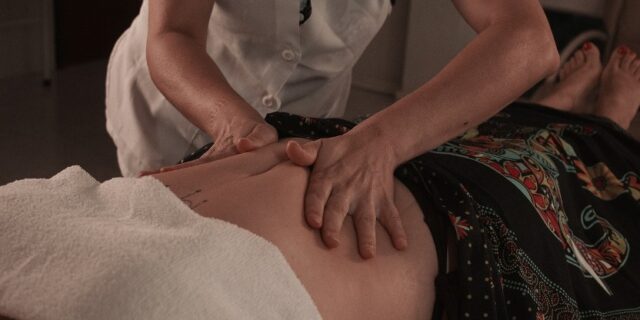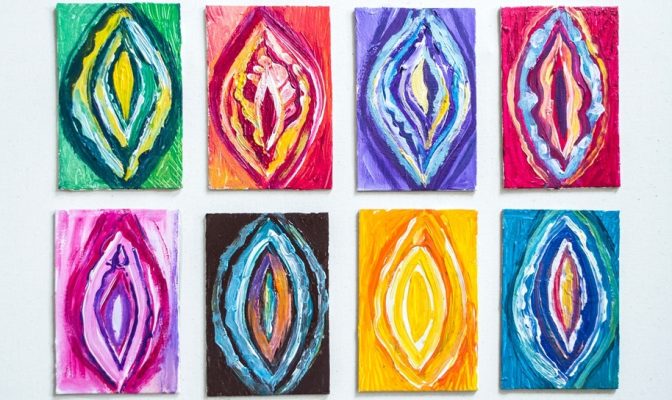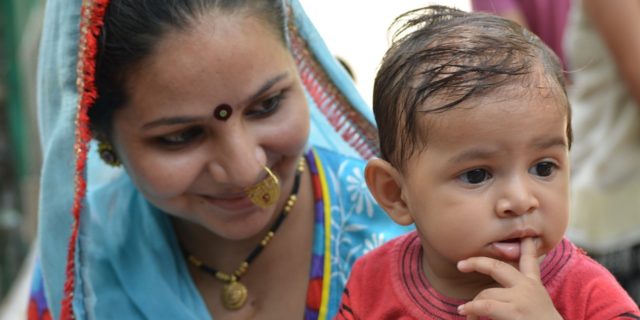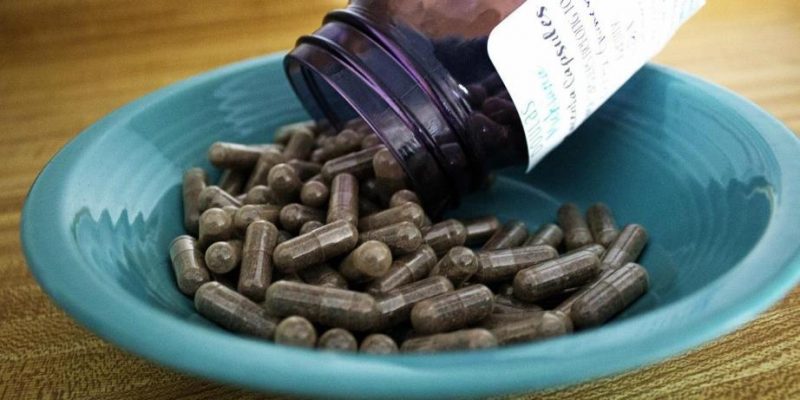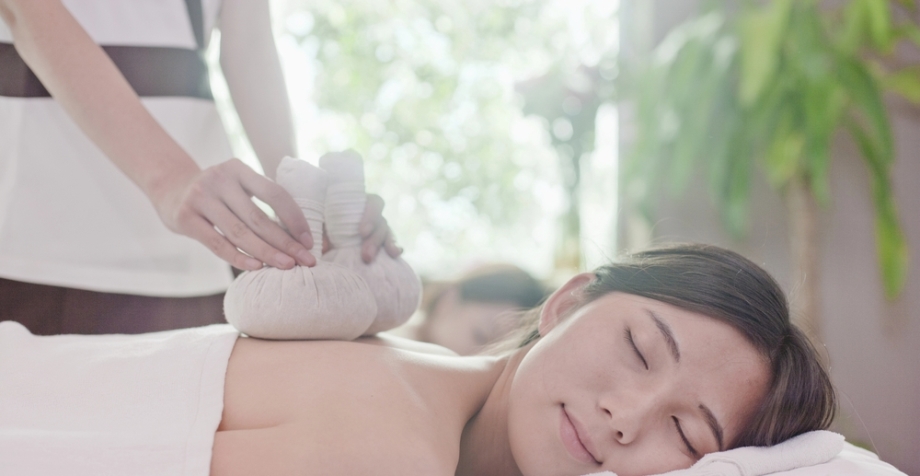
Jamu Postnatal Massage is a traditional postpartum Malay-Indonesian massage and herbal treatment modality supposedly originating in Java in the 17th century, and is primarily about restoring a mother’s body after pregnancy and labor. Additionally, Jamu Massage also brings mental, spiritual, and psychological benefits to women after their delivery.
Far from being obsolete or outdated, Jamu Postnatal Massage treatments are still very popular in Southeast Asia, notably in Singapore, Malaysia, Hong Kong, and in Indonesia.
2. Jamu Treatment Specifics
3. Bengkung Abdominal Binding
4. Jamu Pantang – Restrictions
5. Jamu Massage Benefits
1. Jamu Herbs
The word Jamu in the Malay-Indonesian language means herbs, more general — herbal medicine — and refers to the herbs used during the Jamu Massage treatment. These herbs are a specific mixture of ingredients depending on different usages for postnatal mothers and are derived from roots, barks, flowers, and other parts of various medicinal plants.
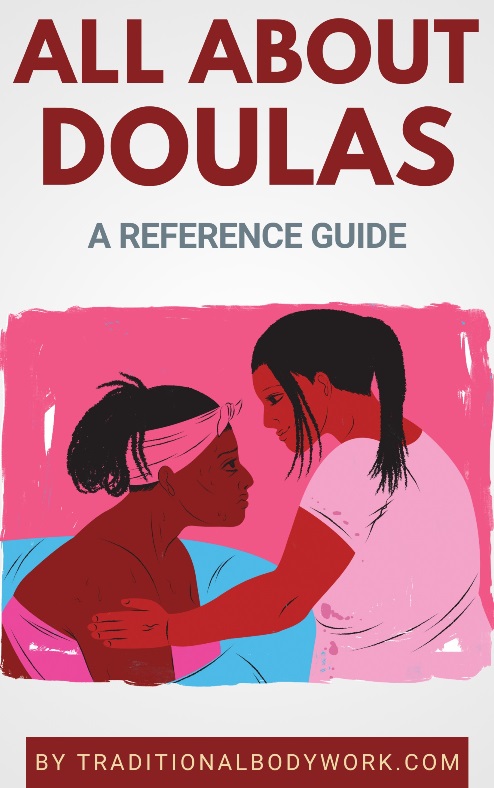
The Jamu herbs can be used for consumption being a special blend of dried leaves and roots brewed and called Ubat Periuk; then there’s Jamu Tapel for the abdomen, Pilis for the forehead, and Param for other parts of the body.
Tapel herbs, for instance, are applied on the abdominal area to help realigning, firm and tighten the abdominal muscles but also to expel excessive winds in the body. It furthermore cleanses out any blood clots remaining in the womb. Pilis herbs are applied on the forehead to ease and cure dizziness, eyestrain and blurry vision.
The herbs are used as pastes or oils to massage or smear them on the body or on certain body parts. Herbal ingredients used are for instance ginger, betel pepper, and lime, vitamin E rich base oils, lemongrass, and turmeric.
2. Jamu Treatment Specifics
Jamu Massage involves massaging the body with a blend of herbal pastes, oils, and hot stones compresses. The masseur uses a unique set of techniques, notably the technique called Sengkak which is used to re-position the uterus back to its natural place.
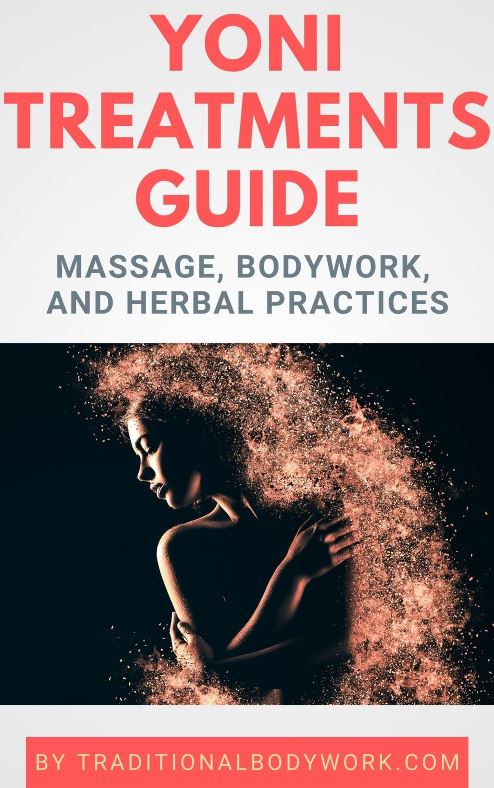
So-called Heat Therapy is another important part of the Jamu postpartum treatment. Heat is applied in various forms, such as a Mandi Mandian (Herbal Bath), Bertungku / Bertuam (Hot Herbal Compress) and Ganggang / Ratus (Vaginal Wash) using a variety of tools and accessories with different therapeutic purposes.
Apart from massage and application of hot stones and herbal packs, Jamu also uses stretches to loosen up tight and sore muscles while easing up muscular tension. The massage works on the legs, back, and shoulders, neck, arms, chest, and abdominal area. Hard spots in the breasts can be worked on with hot stones or herbal packs.
Each Jamu Massage session takes about 45 minutes to one hour. Jamu is not so much a one-time massage but a complete treatment usually offered in five, seven or ten-day packages. The massages are taken every day during that period.
The treatment is suitable for those who have given birth vaginally or via a C-section (caesarean section). With a “normal” delivery, treatments can commence about five to seven days after giving birth. After C-sections it’s advised to start three to four weeks later, but in general, treatments can be effective within the first two to three months after delivery.
3. Bengkung Abdominal Binding
After the Jamu massage session the abdomen is wrapped tightly — called abdominal binding or Bengkung — with a special traditional Indonesian binding cloth of about six meters long with the goal of reducing swelling in the abdominal area, shrinking back the area in the pre-pregnancy state, and supporting the back.
To properly bind the Bengkung, a highly skilled massage therapist is needed. The wrap should be worn at least six to ten hours a day for effective results — more time is possible, even sleeping with it.
4. Jamu Pantang – Restrictions
Traditional Jamu also comes with certain rituals and taboos connected to traditional Malay-Indonesian postnatal care. Part of those rituals are the so-called Pantang or restrictions. These include not leaving the house during the confinement period (between 30 and 44 days), consuming certain hot foods, avoiding to drink cold drinks and other dietary restrictions, or wearing socks all the time, to name some examples.
5. Jamu Massage Benefits
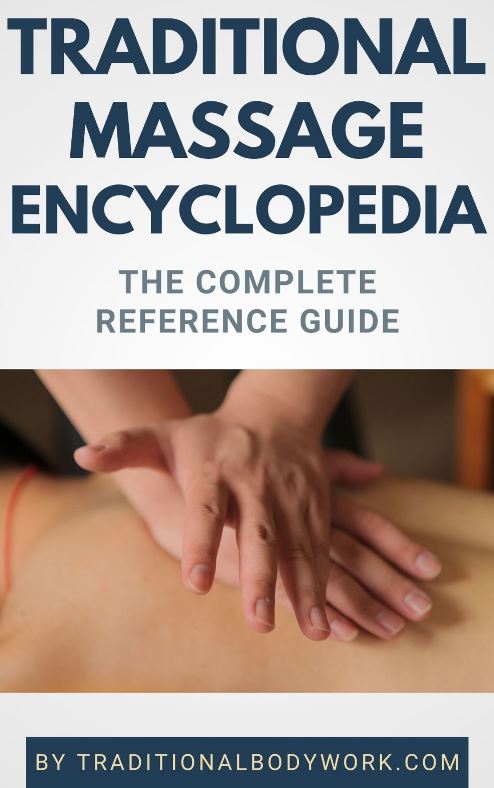
Jamu improves overall blood circulation and it helps to realign the internal organs and get them back into place but also stimulates breastfeeding cycles and helps prevent breast engorgement and blocked milk-ducts. The massage is very effective in expelling abdominal and uterine winds and expelling internal blood clots.
A crucial aspect of the Jamu work is pushing up the uterus to its natural place and help to shrink it to normal size and/or help eliminating or reducing the effects of possible uterine prolapse by strengthening pelvic floor muscles and ligaments.
Additional benefits are said to be the reduction of stretch, scars and acne marks due to the pregnancy period, boosting energy levels, reduction of postnatal depressions, migraines and headaches, reducing water retention, and cellulite.
Finally, Jamu lymphatic detox massage techniques also help to eliminate toxins still residing inside the uterus after delivery.

